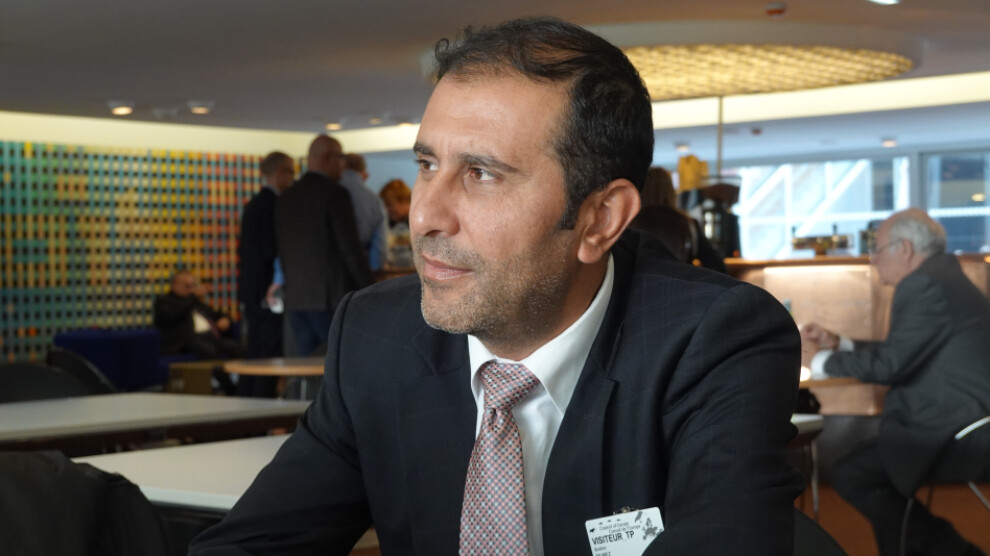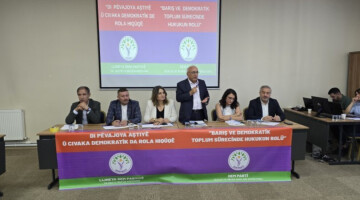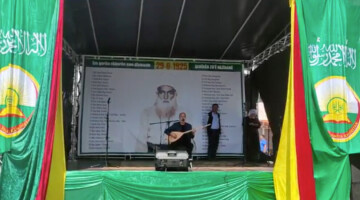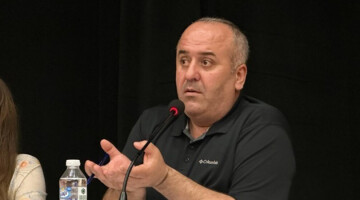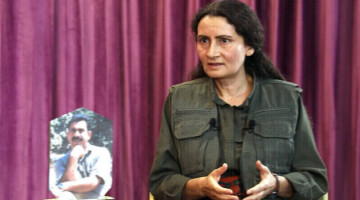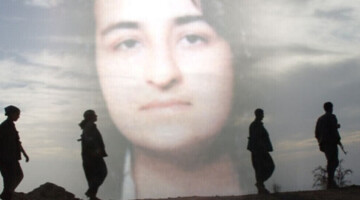The Vigil for Öcalan website published an interview with one of the Kurdish people's leader's lawyers, Ibrahim Bilmez.
Bilmez said: "This is not the first time we are here in Strasbourg. We have been coming for years. As Abdullah Öcalan’s lawyers, we have been trying to do what we can in the justice system here. The European Court of Human Rights is the highest justice institution in Europe, and, as Öcalan’s lawyers, we have open cases in the court and other cases from the past. Some past decisions were positive and others negative. We are working on getting the positive decisions put into practice, because Turkey doesn’t even implement the decisions taken by the court. Just as the Kurdish people have been coming for years to hold a vigil in front of the Council of Europe and the European Court of Human Rights, so we have also been coming for years to try and see that their decisions are implemented."
With respect to the 2014 Court ruling that found that Öcalan’s imprisonment without the possibility of parole denied him the fundamental ‘right of hope’, which was finally looked at by the Council of Europe’s Committee of Ministers last year, Bilmez said: "Turkey was given until the end of September to respond. However, there was nothing discussed at the September meeting of the Committee of Ministers. We are waiting to see if it is on the agenda for the next meeting, and NGOs in Turkey are working on a submission to the committee to try and push this forward.
On one hand, Turkey is trying to delay everything – not implementing what is demanded and playing for time. And on the other hand, the Council of Europe is assisting Turkey to do this. They do not uphold the fundamental principles and values for which they were established, but are effectively helping Turkey to evade them. Vigils outside the Council and in other places can put more pressure on the Council and on Europe’s justice system. Rights cannot be gained without a struggle. This is an unfortunate reality.
The European Committee for the Prevention of Torture (CPT) [which visited İmrali prison in September], has been visiting İmralı for nearly 24 years. Through these years, we have always informed them of the situation, and they have seen it for themselves, and their reports list some of the injustices. Through the years, we meet with them, and they say: ‘Yes, we have visited. We can’t say anything about the visit. We will prepare a report and give it to the interested states, and if and when they agree, we will make it public. Before then, no information will be available.’ We hope that this time it doesn’t take a year, or even six months. It is nineteen months since we have had any information from our client."
Bilmez added: "In the CPT’s reports there are criticisms and things that need to be changed – such as allowing visits from family and lawyers. But who is going to demand that these happen? Nothing has happened for all that time.
The aim of the international conspiracy [that led to Öcalan’s abduction] was to destroy him. It was not just against Öcalan, but against the Kurdish people and the Kurdish freedom struggle. However, they didn’t get their expected result. Öcalan is isolated in İmralı, but his thoughts and ideas have grown – not only in Kurdistan, but in the whole world. We have seen what happened in Rojava, the resistance against Daesh, and now in Iran, where women are on the streets shouting Öcalan's slogan: Jin Jiyan Azadi. Understanding of Öcalan, both in the region and internationally, has grown with time."
Bilmez also spoke about the importance of removing the PKK from the lists of terrorist organizations and said: "This is very important because it opens the way to a democratic and peaceful solution to the Kurdish issue. Delisting is important to put an end to the denial and annihilation policies that have been applied to the Kurdish people by Turkey and also by the international powers. It will open the possibility of a real solution that meets the rights of the Kurdish people. If you insist that the PKK is a terrorist organisation, Turkey cannot be made to solve the issue with terrorists. The states who put the PKK on a terror list don’t want to solve the Kurdish issue that they created 100 years ago. We ask, what is their approach to solving the Kurdish issue? What rights do Kurds have?
Kurdish people have been carrying out the struggle for forty years, together with their friends all over the world, and each of those friends has added their own input. We believe in international solidarity, and that growing solidarity will be more important in solving not only the Kurdish issue, but the universal problems to which it is linked. That is why we are calling on everybody to understand that freedom for Öcalan is freedom for the Kurdish people, and freedom for the Kurds is your freedom, too. With this knowledge, we can strengthen international solidarity."

